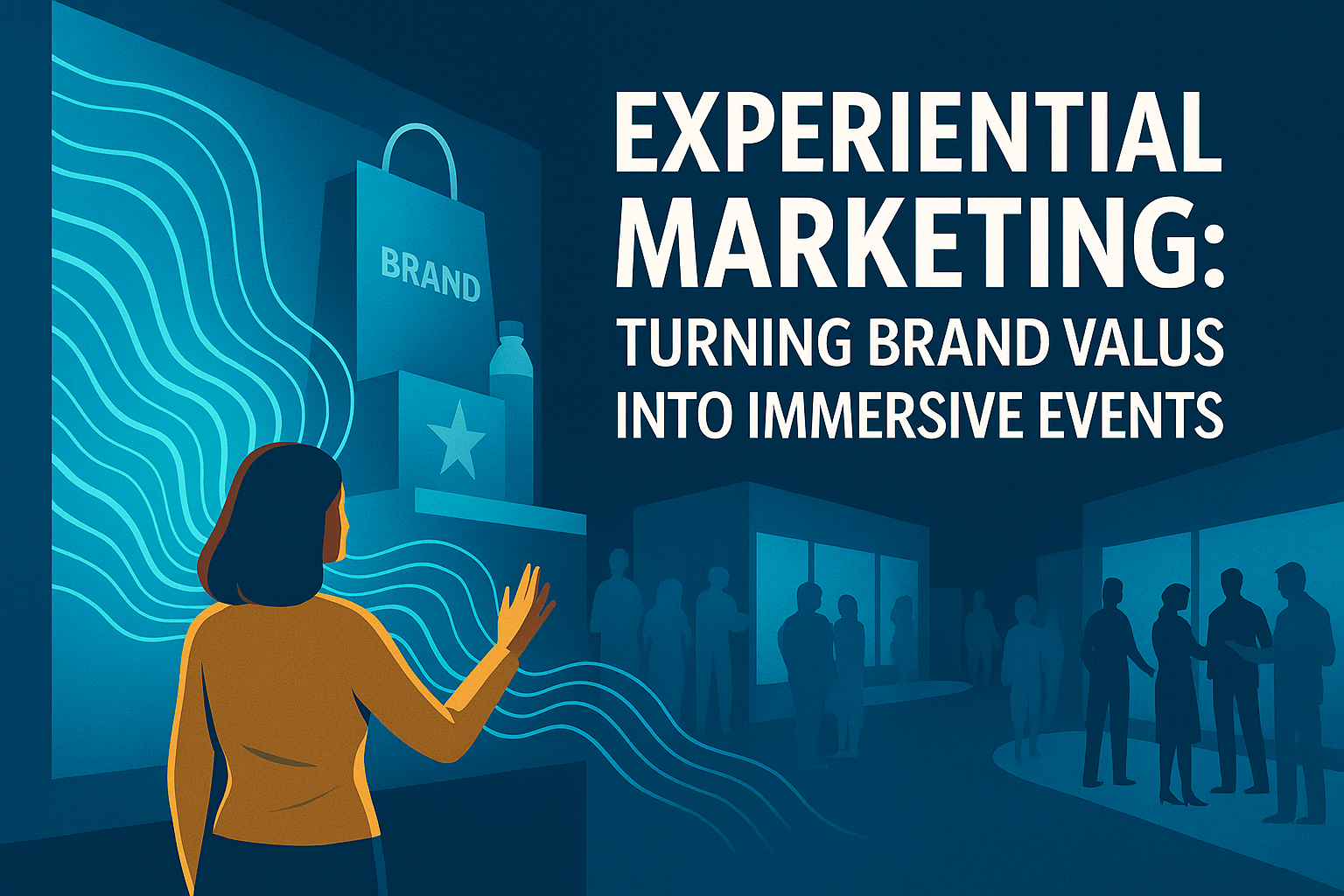
In an increasingly competitive and digital-first marketplace, brands must go beyond traditional advertising to create meaningful connections with their audience. Enter experiential marketin a strategy that brings your brand values to life through immersive and memorable experiences. Whether it’s a pop-up activation, a branded conference, or a multi-sensory installation, experiential marketing is a powerful tool to build loyalty, boost engagement, and drive conversions.
Dubai, known for its innovation and hospitality excellence, has become a hotspot for brands embracing this marketing revolution. In 2025, experiential marketing will not just be a buzzword but a core component of any successful brand strategy.
What Is Experiential Marketing?
Experiential marketing also called engagement marketing or live marketing is a strategy that directly engages consumers, encouraging them to participate in a brand experience. It goes beyond messaging, focusing on creating emotional connections through real-life interactions that reflect a brand’s mission, vision, and values.
This method transforms passive audiences into active brand ambassadors by immersing them in a story or scenario that resonates on a deeper level.
Why Experiential Marketing Works
- Emotional Resonance: Experiences are more memorable than advertisements. Consumers remember how a brand made them feel, and that feeling drives loyalty.
- Authenticity: Immersive events provide an authentic space for customers to interact with a brand in real life beyond screens and pixels.
- Social Amplification: Instagrammable activations, surprise pop-ups, and branded events often lead to massive social sharing, amplifying your message far beyond the event’s footprint.
- Direct Feedback: These experiences offer real-time interaction with consumers, allowing brands to gather direct feedback and understand preferences on the spot.
Examples of Experiential Marketing in Action
- Coca-Cola’s Happiness Machine: A vending machine that dispensed surprises and hugs along with Coke a joyful representation of the brand’s essence.
- Nike’s Human Race Event: A global running event that empowered communities and encouraged healthy living, aligning with Nike’s core message of personal achievement.
- Google Home Mini Pop-Ups: Interactive demo booths where visitors could try out voice-activated features in real-life scenarios educational and fun.
In Dubai, many luxury and tech brands are embracing similar experiential strategies to woo their discerning clientele.
How to Align Brand Values with Immersive Experiences
1. Define Your Brand DNA
Clearly articulate what your brand stands for. Is it innovation? Sustainability? Community? These core values should be the foundation of your experiential event.
2. Know Your Audience
Understand the desires, behaviors, and pain points of your target audience. Craft experiences that solve their problems or bring joy in unique, branded ways.
3. Choose the Right Venue and Medium
From Dubai’s high-end resorts to its vibrant outdoor spaces and malls, the location and format of your event should complement the narrative.
4. Integrate Technology
Leverage AR/VR, AI-driven personalization, gamification, and interactive touchpoints to enhance the experience.
5. Ensure Brand Cohesion
Every touchpoint from signage to staff uniforms to giveaways should reinforce your brand identity.
Trends in Experiential Marketing for 2025
- Sustainability-Focused Events: Consumers are demanding eco-friendly initiatives. Brands incorporating sustainability into their experiences will see higher engagement.
- Micro-Experiences: Smaller, hyper-personalized activations are gaining popularity over grand spectacles.
- Hybrid Immersion: Blending physical and virtual experiences for greater accessibility and reach.
- Sensory Branding: Using scent, sound, and texture to build stronger brand associations.
- Data-Driven Creativity: Using customer insights to tailor each event touchpoint for maximum relevance and impact.
Measuring ROI in Experiential Marketing
It’s not just about footfall. Here’s how to measure success:
- Social media mentions and engagement
- Post-event surveys and sentiment analysis
- Customer acquisition and retention metrics
- Website traffic and conversion spikes
- Brand perception studies
Facts
Experiential marketing is the future of emotional branding. It transforms abstract values into tangible experiences that linger in the hearts and minds of your audience. Especially in a dynamic market like Dubai, where consumers expect more than just products they want stories, impact, and connection experiential marketing delivers unmatched value.
As we move into 2025, brands that harness the power of immersive events aligned with authentic values will rise above the noise, foster deeper loyalty, and inspire lasting customer advocacy.
Not necessarily. While some campaigns are grand in scale, micro-experiences tailored to niche audiences can be both affordable and impactful.
All industries from tech and retail to finance and hospitality can use experiential marketing, as long as it’s aligned with their customer journey.
Duration depends on the campaign goal. It can range from a single-day activation to a multi-week event series.
Absolutely. Trade shows, product demos, and corporate experiences are powerful tools for B2B engagement and trust-building.
Failing to tie the experience back to the brand’s core values or neglecting to collect post-event data for performance analysis.